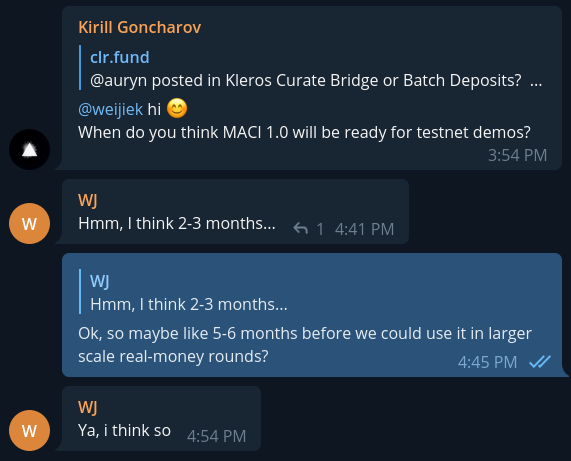When round 2 completes, we will have checked off each of the milestones before increasing the size of the funding matching pool.
However, when laying out the roadmap, we hadn’t accounted for the massive increase in gas prices and volatility over the past few months.
We’re now at a crossroad with a few different options on how to proceed before increasing the matching pool:
- Stay on xDai and (wait for Kleros to) develop a bridge contract to read Kleros Curate data from mainnet.
- Stay on xDai and deploy some alternate to Kleros on xDai.
- Move back to mainnet now and just deal with gas price volatility for the time being.
- Implement a scaling solution (Barry’s Batch Deposits, for example) prior to moving back to mainnet.
My preference is option 4, since this will give clr.fund the most long-term benefit. There is also a chance that Kleros will implement a bridge in the mean time so we can query the mainnet contracts from xDai.

